San Carlos could become one of the first cities in the Bay Area to adopt regulations limiting the types of biosafety levels it’ll permit within city limits and requiring stronger oversight of permitted uses following a decision by the city’s Planning Commission Monday.
“With the work that the staff has put forward we have a mechanism to test whether public safety will be met and whether in that instance the risk versus the opportunity is a balance and say no.
“It also creates the opportunity to say yes and that just feels like the appropriate thing to bring forward to City Council,” Chair Jim Iacoponi said during a meeting Monday.
In a 3-1 vote, the San Carlos Planning Commission recommended that the City Council agree to ban biosafety level 4 uses within the city while creating a conditional use permit process for life science developers looking to add biosafety level 3 labs into their projects.
Those levels typically involve research into high-risk and strictly regulated microbes such as yellow fever and West Nile virus for level 3 and ebola for level 4, according to Consolidated Sterilizer Systems, a biosafety company based in Massachusetts.
No BSL 4 labs currently exist in California with only seven being located in the nation, according to globalbiolabs.org, an interactive online map developed and maintained by the Bulletin of the Atomic Scientists, George Mason University Schar School of Policy and Government and King’s College London.
Carole Johnson, planning director of Good City Company, a city contractor, previously said a handful of BSL 3 labs can be found throughout the Bay Area. Finding a list of how many currently exist can be challenging, however, because BSL 3 labs are often built for a specific research project and then decommissioned once the project is complete, she added.
Under the proposed land use change, developers seeking to build a BSL 3 lab would be required to hire a consultant who would verify whether the lab would be built in compliance with state and federal safety standards. Even if the consultant found that the plans were in compliance, the city would still have the authority to deny the application for the conditional use permit, City Attorney Greg Rubens said.
If the permit was approved, the developer would then have to submit to an inspection after construction was complete to certify that they remained in compliance and would have to agree to an annual review.
Staff initially proposed that the city outright ban the use of BSL 3 and 4 labs in the city at the request of councilmembers who were encouraged by community members to consider the move given that millions of square feet of office space has been proposed on the city’s east side, much of that by life science developers.
Members of the public continued their advocacy for an outright ban during Monday’s meeting, arguing that the uses should not be located so close to residential neighborhoods, privately funded research programs are not as regulated as publicly funded programs, and the city lacks the expertise to provide adequate oversight.
Recommended for you
“You’re talking about putting up facilities whose impact will not just affect your local community but possibly the entire global community,” said Bryce Nickels, a professor of genetics at Rutgers University and laboratory director at the Waksman Institute of Microbiology, both in New Jersey. “I would say San Carlos has a tremendous opportunity to be a leader in the global community, to stand up to these special interests [groups] and these people that are just in this for the dollar and say no we do not want these. ... There are enough of them.”
Other industry experts disputed claims the industry is not adequately regulated, noting a number of local, state and federal agencies provide oversight including local fire departments, County Health, the California Department of Public Health, the Centers for Disease Control and Prevention and the Food and Drug Administration.
Additionally, data developed through unregulated programs would not be granted approval by the Food and Drug Administration to be used for product development, said Melanie Cohn, senior director of regional policy and government affairs for Biocom California, a life science industry advocacy group.
“We’re not special interests. This industry works on treatments and cures for disease of every shape and size,” Cohn said. “We’re not here to make money. We’re here to find cures. Yes we’re businesses, but that doesn’t make us the enemy.”
Some, including life science developers, also argued that by limiting BSL 3 uses in the city, officials would be sending a message to the public that the life science industry was no longer welcomed.
Dimitri Vandellos, president of the Greater East San Carlos Neighborhood Association, and other residents took issue with the argument. Vandellos said he was deeply concerned industry representatives would make such a “veiled threat.”
Principal Planner Lisa Costa Sanders said staff did not research whether the additional costs for hiring a consultant or paying for a conditional use permit fee would affect development interests.
Commissioner Janet Castaneda noted the proposal only addressed regulations to the physical structure and not the nature of what would be potentially researched. She was the lone vote against recommending the proposal to the council after her colleagues shared apprehension about limiting what could be researched without more specific information.
Instead, Iacoponi and Commissioner David Roof argued that, by moving forward with the proposal, the city would create a review and oversight process while also being a welcoming area to potentially life-saving research. Ultimately, the council will have the final decision on whether to allow BSL 3 and 4 in the city, they noted.
“I think it’s critical we get this issue right as a city and make sure research activities are compatible with being in San Carlos and that there’s sufficient oversight,” said Roof, a project manager at Genentech, a biological research company based in San Francisco, who previously said his position would not influence his vote. “A ban would close down any opportunity for San Carlos to have input in that discussion.”


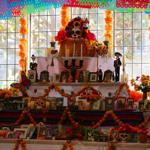


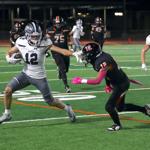
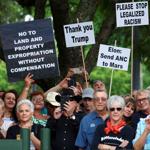

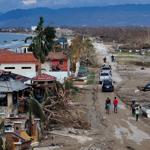
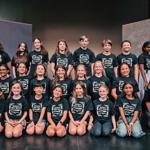
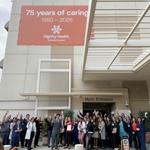
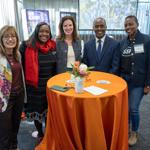
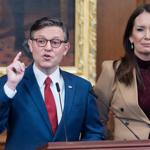

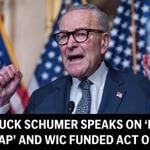



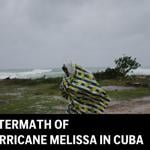

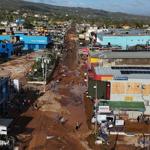










(0) comments
Welcome to the discussion.
Log In
Keep the discussion civilized. Absolutely NO personal attacks or insults directed toward writers, nor others who make comments.
Keep it clean. Please avoid obscene, vulgar, lewd, racist or sexually-oriented language.
Don't threaten. Threats of harming another person will not be tolerated.
Be truthful. Don't knowingly lie about anyone or anything.
Be proactive. Use the 'Report' link on each comment to let us know of abusive posts.
PLEASE TURN OFF YOUR CAPS LOCK.
Anyone violating these rules will be issued a warning. After the warning, comment privileges can be revoked.